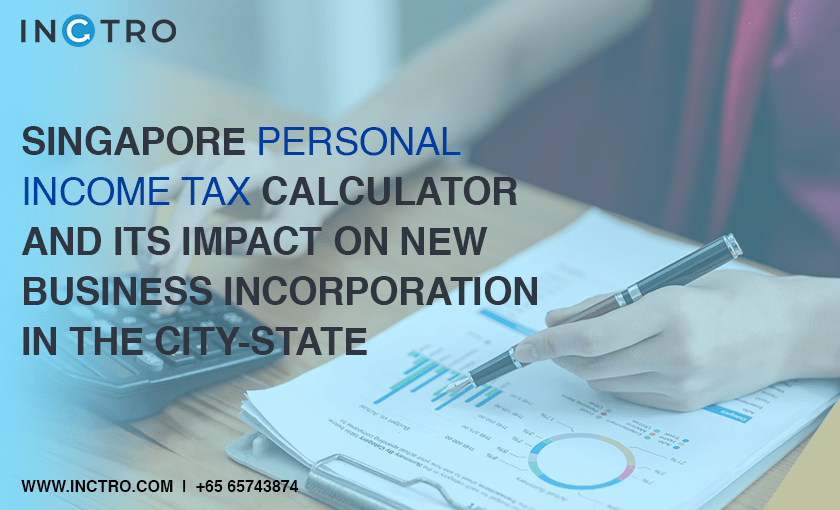- February 4, 2023
- Posted by: Vivek Sharma
- Category: Knowledge Base

Individual tax rates are important for international businesses because they can impact the company’s bottom line and competitiveness. Higher individual tax rates can increase the cost of operating in a country, making it less attractive to foreigners incorporating new businesses there. On the other hand, lower tax rates can make a country more appealing to businesses, attracting foreign investment and promoting economic growth.
In addition, individual tax rates can also impact the personal finances of employees and executives working for international businesses. High individual tax rates can reduce employees’ take-home pay, making it more difficult for companies to attract and retain top talent. Lower tax rates can improve employees’ financial situation, making it easier to attract and retain the best employees.
Moreover, a country’s tax system, including individual tax rates, can also impact the mobility of employees. For example, if a company operates in multiple countries with different tax regimes, employees may be more likely to work in countries with lower tax rates. This situation can impact the company’s ability to manage its operations effectively and maintain a cohesive workforce.
Primary tenets of income tax in Singapore
Income tax is a mandatory tax on the taxable income of individuals and businesses in Singapore. It is an essential source of revenue for the government, which is used to fund various public services and infrastructure projects.
In Singapore, income tax is administered by the Inland Revenue Authority of Singapore (IRAS). And the IRAS is responsible for collecting and enforcing income tax laws in the country. The tax year in Singapore runs from 1st January to 31st December, and the tax returns must be filed by 15th April of the following year.
The tax rate for individuals in Singapore ranges from 0% to 22%, depending on their taxable income. Which is one of the lowest tax rates in the region for a major economy.
Is Singapore’s corporate tax rate the lowest in the world?
Businesses in Singapore are required to pay corporate tax on their taxable profits. The corporate tax rate in Singapore is 17%, one of the lowest in the world. Businesses must also file an annual tax return and pay taxes quarterly.
In addition to the standard income tax, there are several other taxes that individuals and businesses may be subject to in Singapore. These include stamp duty, goods and services tax (GST), property tax, and stamp duty on share transactions.
The IRAS provides a comprehensive range of resources to help individuals and businesses understand and comply with their tax obligations in Singapore. These include tax guides, calculators, and e-services for filing tax returns and making tax payments.
Here, you can refer to this chart to understand your estimated income -tax payable if you are a resident of Singapore. We recommend that you seek professional help while determining your tax liability; this chart is for educational and indicative purposes only.
| Resident tax rates | ||
| From YA 2024 onwards | ||
| Chargeable Income | Income Tax Rate (%) | Gross Tax Payable ($) |
| First $20,000 | 0 | 0 |
| Next $10,000 | 2 | 200 |
| First $30,000 | 200 | |
| Next $10,000 | 3.5 | 350 |
| First $40,000 | 550 | |
| Next $40,000 | 7 | 2,800 |
| First $80,000 | 3,350 | |
| Next $40,000 | 11.5 | 4,600 |
| First $120,000 | 7,950 | |
| Next $40,000 | 15 | 6,000 |
| First $160,000 | 13,950 | |
| Next $40,000 | 18 | 7,200 |
| First $200,000 | 21,150 | |
| Next $40,000 | 19 | 7,600 |
| First $240,000 | 28,750 | |
| Next $40,000 | 19.5 | 7,800 |
| First $280,000 | 36,550 | |
| Next $40,000 | 20 | 8,000 |
| First $320,000 | 44,550 | |
| In excess of $320,000 | 22 |
| From YA 2017 to YA 2023 | ||
| Chargeable Income | Income Tax Rate (%) | Gross Tax Payable ($) |
| First $20,000 Next $10,000 | 0 2 | 0 200 |
| First $30,000 Next $10,000 | 3.5 | 200 350 |
| First $40,000 Next $40,000 | 7 | 550 2,800 |
| First $80,000 Next $40,000 | 11.5 | 3,350 4,600 |
| First $120,000 Next $40,000 | 15 | 7,950 6,000 |
| First $160,000 Next $40,000 | 18 | 13,950 7,200 |
| First $200,000 Next $40,000 | 19 | 21,150 7,600 |
| First $240,000 Next $40,000 | 19.5 | 28,750 7,800 |
| First $280,000 Next $40,000 | 20 | 36,550 8,000 |
| First $320,000 In excess of $320,000 | -22 | 44,550 |
Conclusion
In conclusion, income tax is an important aspect of life in Singapore, and individuals and businesses need to understand their obligations and comply with the relevant laws and regulations. The IRAS provides support and resources to help taxpayers fulfil their obligations and ensure that the government has the revenue to fund vital public services and infrastructure projects.
